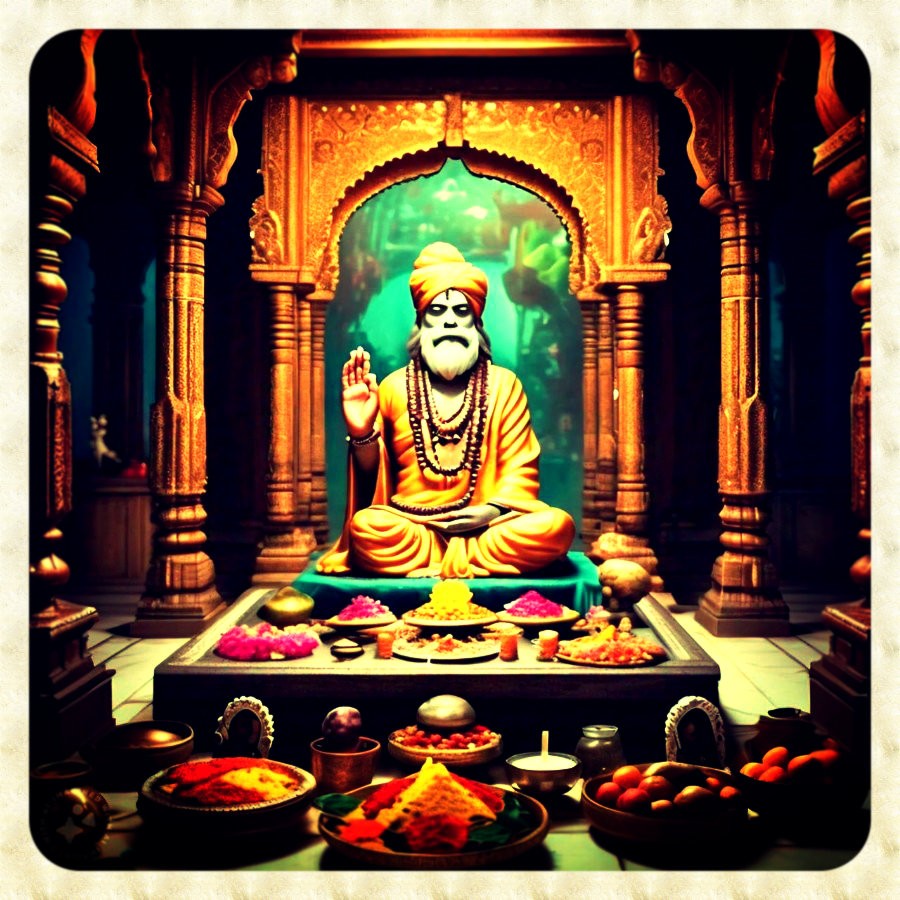Rishi Panchami: Date, Importance, and All You Need to Know

Date of Celebration
Rishi Panchami is celebrated on the fifth day of the waxing moon (Shukla Paksha) during the Hindu month of Shravana (which generally falls between August and September). The exact date varies each year based on the lunar calendar. This day is specifically dedicated to honoring the sages (rishis) and is observed with various religious and cultural activities.
The Rishi Panchami Katha
Rishi Panchami Katha is a revered tale that forms the cornerstone of the festival known as Rishi Panchami, observed in Hindu tradition. The story highlights the profound respect for sages (rishis) and their crucial role in guiding and uplifting humanity through their wisdom and spiritual practices. According to the Katha, Rishi Sushruta, a legendary sage known for his contributions to Ayurveda, plays a central role. The narrative unfolds as follows:
In a distant kingdom, a compassionate king and queen longed for an heir but were unable to conceive a child. Despite their wealth and power, they faced the deep sorrow of childlessness. Upon seeking counsel from their advisors, they were guided to approach Rishi Sushruta, known for his profound wisdom and spiritual prowess.
Embarking on a difficult journey, the king reached Rishi Sushruta’s hermitage, nestled by the sacred river Ganga. The sage, moved by their plight, agreed to help. He instructed the royal couple to perform a series of meticulous rituals and prayers designed to invoke divine blessings. These included daily pujas, offerings, recitation of Vedic hymns, and strict fasting. The king and queen followed these instructions with unwavering devotion.
After months of dedicated ritual practice, their devotion bore fruit when the queen discovered she was pregnant. The joy and relief that followed were immense, and the king, in gratitude, organized a grand celebration to honor Rishi Sushruta. The festival established to commemorate this event was named Rishi Panchami, held on the fifth day of the waxing moon in the month of Shravana.
Importance of Rishi Panchami
1. Honoring the Sages: Rishi Panchami is primarily a day to pay homage to the great sages of Hindu tradition. It acknowledges their contributions to spiritual wisdom, moral guidance, and the preservation of ancient knowledge. The day reflects a deep respect for these revered figures and their impact on human life and culture.
2. Spiritual Cleansing: The rituals performed on Rishi Panchami are meant to purify the body, mind, and soul. Devotees engage in practices such as ritual bathing, fasting, and prayers to cleanse themselves of past sins and to seek spiritual rejuvenation. The act of purification is both a physical and spiritual endeavor.
3. Expression of Gratitude: The festival serves as an opportunity for devotees to express their gratitude to the sages for their teachings and guidance. It is a time to reflect on their wisdom and to seek their continued blessings.
4. Cultural and Traditional Significance: Rishi Panchami reinforces cultural values and traditional practices. It connects individuals to their spiritual heritage and fosters a sense of continuity and tradition within the community. The observance of this festival helps in preserving the cultural and religious practices of Hinduism.
5. Community Bonding: The festival promotes community involvement and collective celebration. Activities such as communal prayers, charitable acts, and the recitation of the Katha (story of the sages) enhance social bonds and foster a sense of unity among participants.
Why Rishi Panchami Katha is Popular
1. Reverence for Sages: The Rishi Panchami Katha underscores the immense respect and reverence for sages who have imparted wisdom and guided humanity. The story celebrates their role in preserving spiritual and medicinal knowledge, making it deeply meaningful for devotees who value the teachings of ancient sages.
2. Symbol of Hope and Faith: The narrative illustrates how faith and devotion can lead to miraculous outcomes. The king and queen’s perseverance in performing the rituals and their unwavering faith in Rishi Sushruta’s guidance serve as powerful symbols of hope. This aspect of the story resonates with many people who seek inspiration and believe in the power of devotion.
3. Cultural and Spiritual Significance: The Katha reflects essential cultural values and spiritual practices of Hinduism. By honoring the sages through the festival of Rishi Panchami, people reconnect with their spiritual heritage and uphold traditions that have been cherished for centuries.
4. Community Celebration: The festival of Rishi Panchami is marked by communal activities, including rituals, prayers, and charitable acts. This sense of community and collective celebration enhances the festival’s appeal, bringing people together in a shared expression of gratitude and devotion.
Facts About Rishi Panchami
1. Historical Origins: The origins of Rishi Panchami are rooted in the story of Rishi Sushruta, a legendary sage known for his contributions to Ayurveda. The festival commemorates the divine intervention that helped the king and queen conceive an heir, as detailed in the Rishi Panchami Katha.
2. Rituals and Practices: Common practices on Rishi Panchami include ritual bathing in sacred rivers or water sources, performing pujas (worship), observing a fast, and engaging in acts of charity. Devotees also recite hymns and offer prayers to honor the sages.
3. Observances Across Regions: While Rishi Panchami is widely observed in various regions of India, the specific customs and rituals can vary. In some regions, the festival is marked by elaborate processions, while in others, it is celebrated with quiet devotion at home.
4. Significance of Ritual Bathing: Bathing in a sacred river or water source is a significant ritual on Rishi Panchami. It symbolizes the purification of sins and the renewal of spiritual energy. Sacred rivers like the Ganga are particularly revered for their cleansing properties.
5. Charitable Acts: Acts of charity and giving are an integral part of the festival. Devotees make donations to the needy and offer gifts as a way of embodying the values of compassion and generosity taught by the sages.
6. Involvement of Family and Community: Rishi Panchami often involves family gatherings and community events. Families come together to perform rituals, share meals, and participate in celebrations, strengthening family bonds and community ties.
7. Role of the Katha: The recitation of the Katha, or story of the sages, plays a central role in the festival. It serves to remind devotees of the sages’ teachings and to reinforce the moral and spiritual lessons of the story.
8. Fasting Practices: Fasting is observed on Rishi Panchami as a mark of devotion and spiritual discipline. The fast typically involves consuming only simple, pure foods and abstaining from elaborate meals.
Rishi Panchami is a significant festival dedicated to honoring the sages and their contributions to spiritual and moral guidance. Celebrated on the fifth day of the waxing moon in Shravana, the festival involves a range of rituals and practices that highlight its spiritual, cultural, and community significance. Through its observance, devotees connect with their spiritual heritage, express gratitude, and engage in practices that promote purification and unity.







